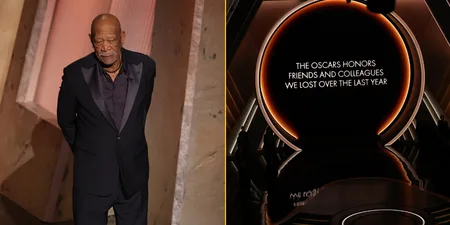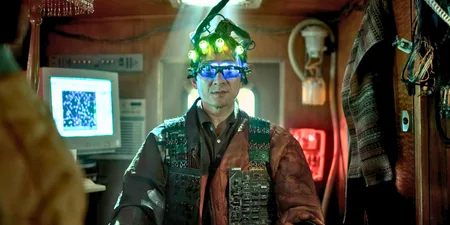When it comes to works of art, there are not many masterpieces that can bring you close to pissing yourself.
The Office is an obvious exception.
You simply can’t come any closer to television perfection than Ricky Gervais and Stephen Merchant managed between the summer of 2001 and Christmas of 2003.
Twelve episodes, a Christmas special and a Red Nose Day revisit have solidified The Office as a genuine modern classic and placed it in the venerated company of Fawlty Towers, Blackadder and Father Ted.
July 9, 2001 saw the first ever episode of The Office air on BBC Two.
Downsize opened with the clicking of a pen by a portly, goateed man who was about to become so convincingly cringeworthy that viewers were initially led to believe that they were watching a legitimate documentary about the inner workings of a Berkshire office.
“I don’t give shitty jobs,” he assured an unseen employee. “If a good man comes to me and says ‘Thank you, David, for the opportunity and continued support in the work-related arena but I’ve done that, I wanna better myself, I want to move on,’ then I can make that dream come true too, a.k.a, for you.”
It soon became apparent, after innumerable cliches, that David Brent was interviewing for the position of a forklift driver and he was only too happy to pick up the phone to Sammy, the old slag, who was responsible for hiring warehouse workers.
It was an ingenious introduction to a character who would somehow balance a tightrope between infuriatingly intolerable and somehow sympathetic.
But where did Brent come from?
The man who played him took to Facebook on the 16th anniversary of The Office to reveal where he got the inspiration for arguably the greatest character in British television history.
“I had David Brent as a character from about 1995 I’d say, and he is based on people I’d met throughout my adult life,” Gervais wrote.
“The very first scene of the series, where he is talking to the forklift truck driver, is based on an interview I had at a temp agency when I was 17, in the school holidays. He was in his mid thirties wearing a bad suit. His opening sentence was, ‘I don’t give sh—y jobs’; I just looked at him and nodded.
Happy Birthday David Brent & #TheOffice https://t.co/wLt8fFNnII
— Ricky Gervais (@rickygervais) July 9, 2017
“He said ‘If a good guy comes to me,’ (he pointed at me to let me know he already knew I was a good guy), ‘and says I wanna work hard because I wanna better myself, then I will make that happen.’ He phoned his friend and at one point said, ‘Yes of course he’s 18’; then he winked at me and did the Pinocchio nose mime. (It was nothing to do with fork lift truck driving but it was for work in a warehouse).
“I never saw him again, but I used to do impressions of him as I told the anecdote over the years. He was the very first Brent I can remember. There have been many since.”
Brent’s right hand man was Gareth Keenan. We’ve all met a Gareth Keenan. We’ve all found excuses to move our desks away from a Gareth Keenan.
Gareth was Brent’s assistant and number one supporter.
His irritating idiosyncrasies made him an unpopular figure among his co-workers due to his insistence on enforcing the rules in place at Wernham Hogg.
“Gareth is even more of a fool than Brent in many ways,” Gervais explained. “And even more immature. There’s a very good reason for that.
“He’s based on the kid I went to school with. I talk about him in most of my stand-up shows. He’s the one who put a crab in a pint of beer on holiday, because I told him, as a joke, ‘When a crab is drunk, it walks forwards.'”
The voice of reason and regular tormentor of Gareth was Tim Canterbury, who was almost too normal to be working in that particular office.
His romance with receptionist, Dawn Tinsley, provided several touching moments and it was his frequent attempts at winding up Gareth that offered many of the less subtle laughs in the early episodes.
“Tim is based on a guy I used to work with, mixed with Norm from Cheers, a little Chandler from Friends, and a touch of Oliver Hardy,” Gervais said.
“Stan and Ollie feature in all my work really. The blind leading the blind. Both thinking they’re with an idiot. Both right. Both struggling. And both needing each other to survive. Beautifully precarious.”
You can read Gervais’ piece in full over on his official Facebook page.






































